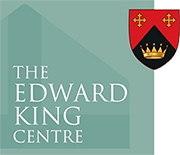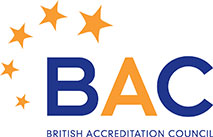Furthering your Formal Studies
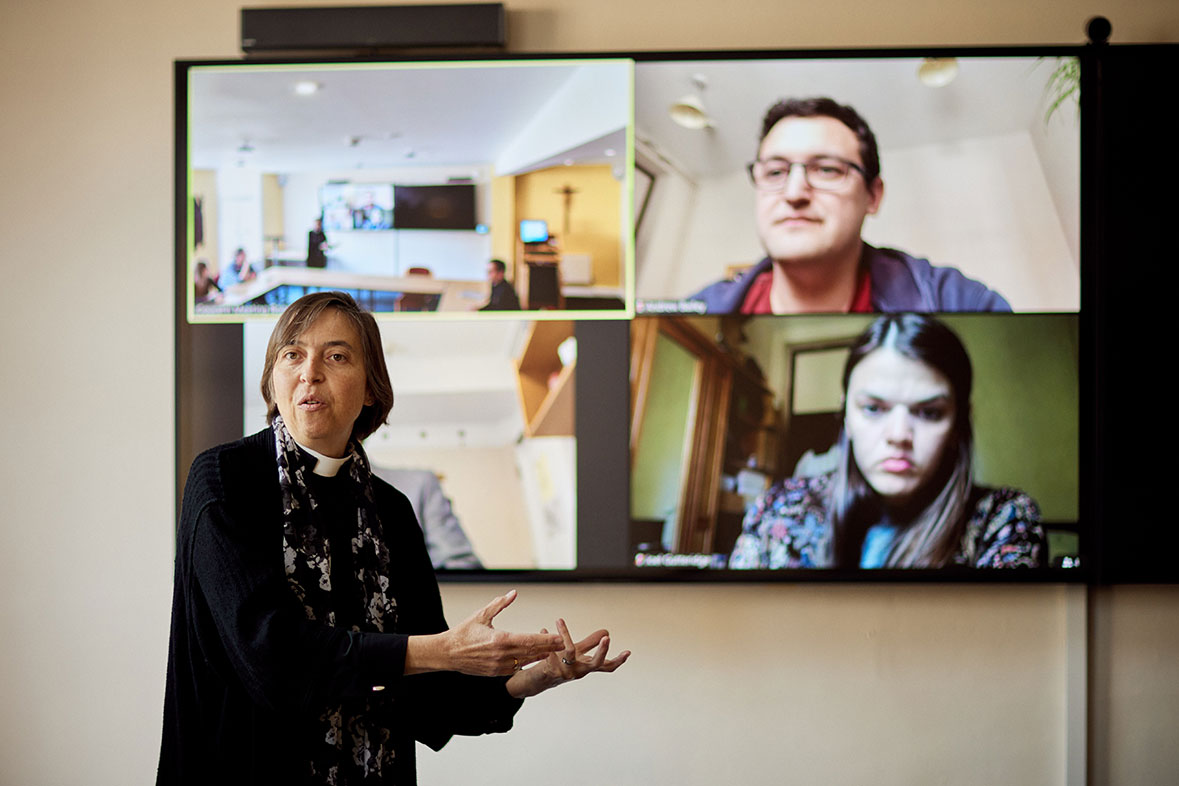
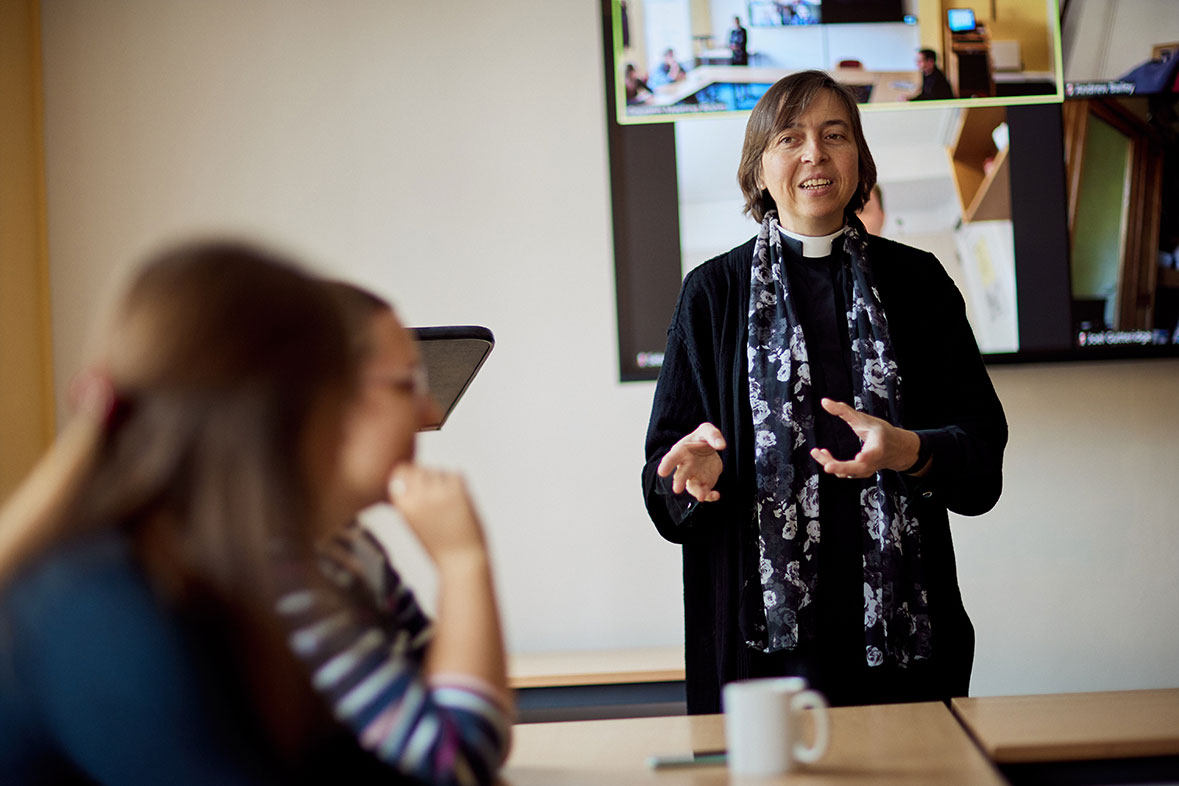
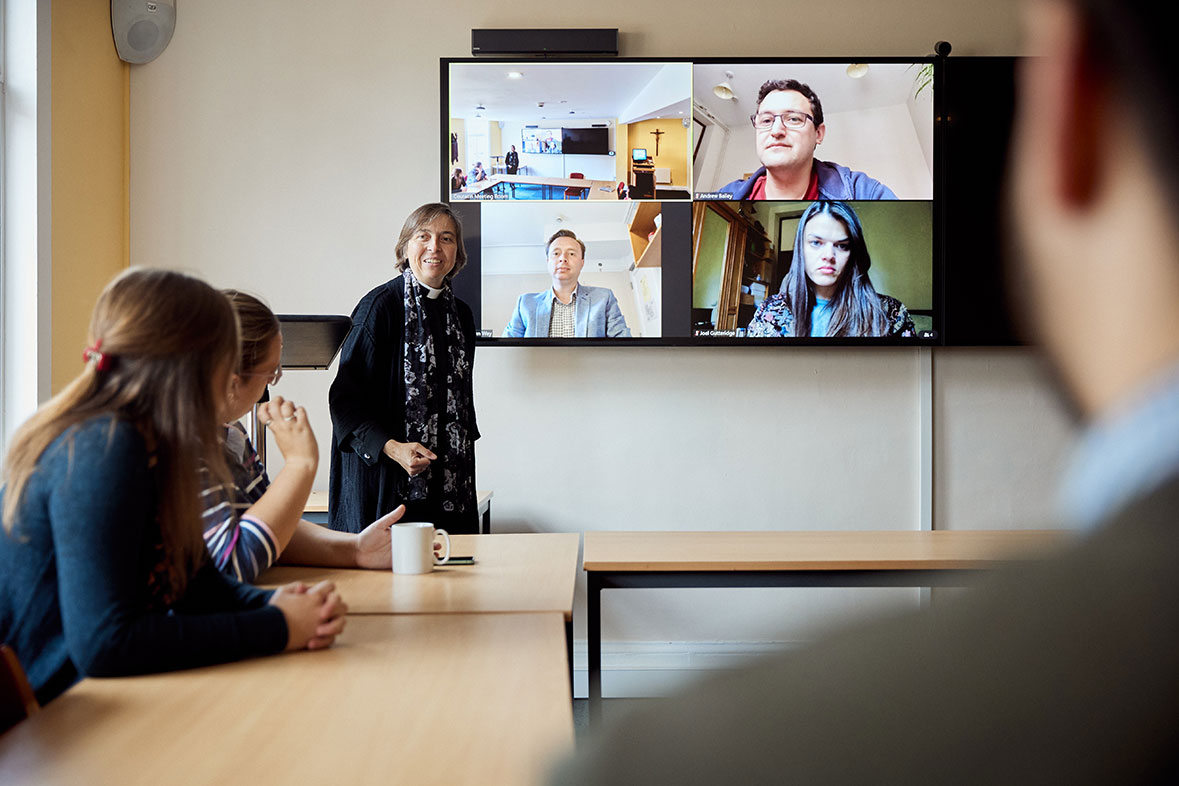
The Edward King Centre offers graduate qualifications in Theology, Mission and Ministry as taught at St Stephen’s House, Oxford. These courses focus on sacramental, liturgical, moral, and pastoral theology in the Anglo-Catholic tradition. Our vision for contemporary theological education is informed by the ecclesial values and academic rigour of the Oxford Movement, the revival of church life in the 19th century of which St Stephen’s House is one expression.
The Edward King Centre’s graduate qualifications are open to lay and ordained people alike who wish to reflect on their own contribution to the life and mission of the Church. Our courses are not limited to those within the Anglo-Catholic tradition: prospective students of other traditions and denominations are equally welcome.
Tuition via the Edward King Centre is non-residential and makes use of online teaching facilities such as live Zoom lectures, live Zoom seminars, and some pre-recorded material.
The qualifications form part of the Church of England’s Common Awards and are validated by the University of Durham. Depending on previous qualifications there are different entry and exit points for graduate students.
Teaching and learning via the Edward King Centre is part time and online based. Thanks to our state-of-the-art connective Zoom Room, students at the Edward King Centre are able to participate with our residential community of ordinands. They have access to St Stephen’s House’s virtual learning environment (Moodle), as well as the Church of England’s hub with eBooks and other electronic resources. In addition, one-to-one tutorials and individual supervision form a crucial part of Independent Learning Projects and dissertations.
Students commit to:
- four hours of online class teaching per week in weeks 1-5 of Michaelmas Term (October – November)
- four hours of online class teaching per week in weeks 1-5 of Hilary Term (January – February)
- two hours of online class teaching per week in weeks 1-5 of Trinity Term (April – May).
This contact time equals 60-credits towards a postgraduate Common Awards qualification each year.
Exact timings and timetabling tbc.
Please complete our on-line application form.
The current deadline for applications to begin study in October 2022 is 15th September 2022.
Our admissions process will normally include an interview.
Undergraduate
Foundation Award Entry to this programme is flexible, depending on the student’s experience, employment and education. In general, applicants – especially those with little or no employment history – are likely to have at least one A-level (Grade E or above) or equivalent. However, if an applicant (especially a mature student) does not have this academic qualification, St Stephen’s House will assess other evidence of the candidate’s potential to benefit from study in Theology, Ministry and Mission at level 4, for example, samples of recent academic writing or relevant work experience.
APL is not permitted for the Foundation Award.
Students who have successfully completed the Foundation Award are eligible to apply to continue to the Certificate or Diploma (HE) in Theology, Ministry and Mission programme.
Students for whom English is their second language should have achieved a score of 6.5 with no component under 6.0 in an IELTS examination, or equivalent.
For information on other undergraduate qualifications please contact admissions@ssho.ac.uk and consult the admissions policy on the College website. https://www.ssho.ac.uk/wp-content/uploads/2021/04/SSH-CA-Admissions-Policy.pdf
BA in TMM. The entrance requirements for the CA BA are normally at least three A-levels (Grade E or above) or equivalent. Graduates in other subjects may enter the BA programme, and students who have completed the Diploma in Theology, Ministry and Mission successfully may be admitted to the final year of the BA programme.
In general, up to a maximum of 120 credits of accredited prior learning may be granted to students who have evidence of, or can demonstrate (by completing a portfolio of work, for example) learning that fulfills the relevant learning outcomes of the level 4 component of the programme. Students who have completed 120 credits of ministerial theology at level 4 in another institution may be considered for exemption from the first year of the BA programme through APL.
Students for whom English is their second language should have achieved a score of 6.5 with no component under 6.0 in an IELTS examination, or equivalent.
Graduate
PGDip in TMM
The admissions requirement for the CA Postgraduate Diploma is normally an upper second-class Honours degree or equivalent in a subject relevant to the proposed course of study. Normally students will need a good degree (or other level 6 qualification, such as a Graduate Diploma) in theology, although graduates (classed as first-class or 2:1 honours) in other disciplines with experience of Theology or Religious Studies to at least undergraduate Certificate level (awarded with credit or distinction, or with an overall mark of at least 60%) may also be admitted to the programme. Given its professional development orientation, students are likely to be preparing for a ministerial or related vocation or be actively engaged in such a profession.
In general, up to a maximum of 40 credits of accredited prior learning may be granted to students who have evidence of, or can demonstrate learning that fulfils, the relevant learning outcomes of the Postgraduate Diploma programme (by completing a portfolio of work, for example).
For candidates from international universities with non-UK qualifications, equivalent level of an upper 2:1 in line with the CA NARCIC licence applies.
Students for whom English is their second language should have achieved a score of 7.0 with no component under 6.5 in an IELTS examination, or equivalent.
MA in TMM
The admissions requirement for the CA MA is normally an upper second-class Honours degree or equivalent in a subject relevant to the proposed course of study. Normally students will need a good degree (or other level 6 qualification, such as a Graduate Diploma) in theology, although graduates (classed as first-class or 2:1 honours) in other disciplines with experience of Theology or Religious Studies to at least undergraduate Certificate level (awarded with credit or distinction, or with an overall mark of at least 60%) may also be admitted to the programme.
Given its professional development orientation, students are likely to be preparing for a ministerial or related vocation or be actively engaged in such a profession. In general, up to a maximum of 60 credits of accredited prior learning may be granted to students who have evidence of, or can demonstrate learning that fulfils, the relevant learning outcomes of the Masters programme (by completing a portfolio of work, for example).
For candidates from international universities with non-UK qualifications, equivalent level of an upper 2:1 in line with the CA NARCIC licence applies.
Students for whom English is their second language should have achieved a score of 7.0 with no component under 6.5 in an IELTS examination, or equivalent.
Full bursaries for CA qualifications taught at St Stephen’s House via the Edward King Centre may be available for eligible candidates including Church of England clergy and former members of St Stephen’s House. Assistance in sourcing other funding can be provided. The on-line application form includes the opportunity to apply for a full fee bursary.
Undergraduate Qualifications
Foundation Award in Theology, Ministry and Mission (60 credits)
£2,500 1 year part time
Certificate of Higher Education in Theology, Ministry and Mission (120 credits)
£4,500 1 year full time or 2 years part time (2x £2,250)
Diploma of Higher Education in Theology, Ministry and Mission (240 credits)
£9,000 2 years full time, i.e. 2 x 4,500 or 4 years part time (4x £2,250)
BA(Hons) in Theology, Ministry and Mission (360 credits)
£13,500 3 years full time, i.e. 3 x £4,500 or 6 years part time (6 x £2,250)
Graduate Qualifications
Graduate Certificate in Theology, Ministry and Mission (60 credits)
£2,500 1 year part time
Graduate Diploma in Theology, Ministry and Mission (120 credits)
£4,500 1 year full time or 2 years part time (2x £2,250)
Postgraduate Certificate in Theology, Ministry and Mission (60 credits)
£2,500 1 year part time
Postgraduate Diploma in Theology, Ministry and Mission (120 credits)
£4,500 1 year full time or 2 years part time (2x £2,250)
MA in Theology, Ministry and Mission (180 credits)
£5,500 2 years full time (1 x £4,500 + 1 x £1,000 (dissertation supervision) or
3 years part time (2 x £2,250 + 1 x £1,000 (dissertation supervision)
We are proud of the wider study support we provide for all our students. We run regular optional study skills workshops, including some dedicated to postgraduate study.
If you are anxious about returning to study, or have questions relating to any kind of disability or other personal circumstances which you feel might impact your ability to complete the application form, attend interview or engage with your chosen course of study, please contact the Academic Secretary in confidence (01865 613 505 or stephanie.sparkes@ssho.ac.uk). She will be able to put you in touch with an appropriate tutor for a confidential discussion.
Common Awards PGCert / PGDip / MA – YEAR 1 (60 credits)
| Module Code | Module Title | Level | Credits | Assessment Method | MT | HT | TT | Submission date |
| 3561 | Specialist Themes in Christian Worship | 6 | 20 | 100%: written assignment (5,000 words) OR agreed equivalent | 5x 2h | 5x 2h | 12 noon 1st September |
|
| EITHER 41420 |
Themes in Moral Theology | 7 | 20 | 100%: written assignment (5,000 words) | 5x 2h | 5x 2h | 12 noon 1st September |
|
| OR 40920 |
Advanced Topic in Christian Doctrine | 7 | 20 | 100%: written assignment (5,000 words) | 5x 2h | 5x 2h | 12 noon 1st September |
|
| 43020 | Reflective Practice Placement | 7 | 20 | 100%: portfolio (6,000 words) | 5hrs as arranged | 12 noon 1st September |
PGCert students will have completed their course after one year of part time study and exit at this stage. Those wishing to progress onto the PGDip and MA continue with the following programme.
Common Awards PGDip / MA – YEAR 2 (60 credits)
| Module Code | Module Title | Level | Credits | Assessment Method | MT | HT | TT | Submission date |
| 42220 | Research and Reflection: Resources and Methods | 7 | 20 | Component 1: 50%: written assignment (3,000 words) Component 2: 50%: written theological reflection (3,000 words) |
5x 2h | 5x 2h | 12 noon 1st September |
|
| EITHER 41420 |
Themes in Moral Theology | 7 | 20 | 100%: written assignment (5,000 words) | 5x 2h | 5x 2h | 12 noon 1st September |
|
| OR 40920 |
Advanced Topic in Christian Doctrine | 7 | 20 | 100%: written assignment (5,000 words) | 5x 2h | 5x 2h | 12 noon 1st September |
|
| 43920 | Independent Learning Project (Long) | 7 | 20 | 100%: ILP (5,000 words) OR agreed equivalent |
4 hrs supervision | 12 noon 1st September |
PGDip students will have completed their course after two years of part time study and exit at this stage. Those wishing to progress onto the MA continue with the following programme.
Edward King Centre – Common Awards MA – YEAR 3 (60 credits)
| Module Code | Module Title | Level | Credits | Assessment Method | MT | HT | TT | Submission date |
| 42360 | Dissertation in Theology, Ministry and Mission | 7 | 60 | 100%: Written assignment (12,000 words) OR agreed equivalent | 6 hrs supervision | 12 noon 1st September |
